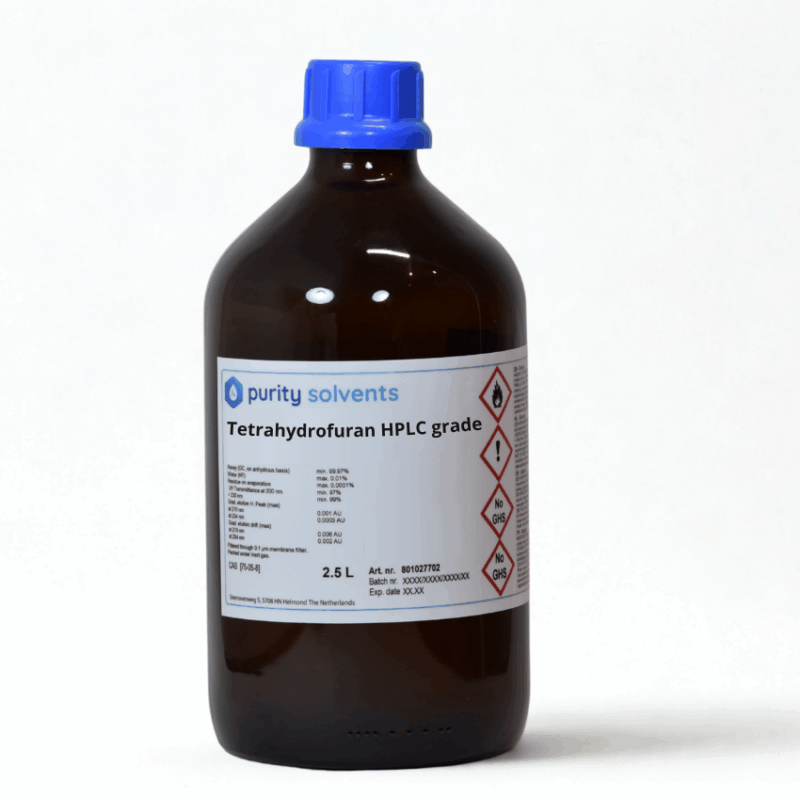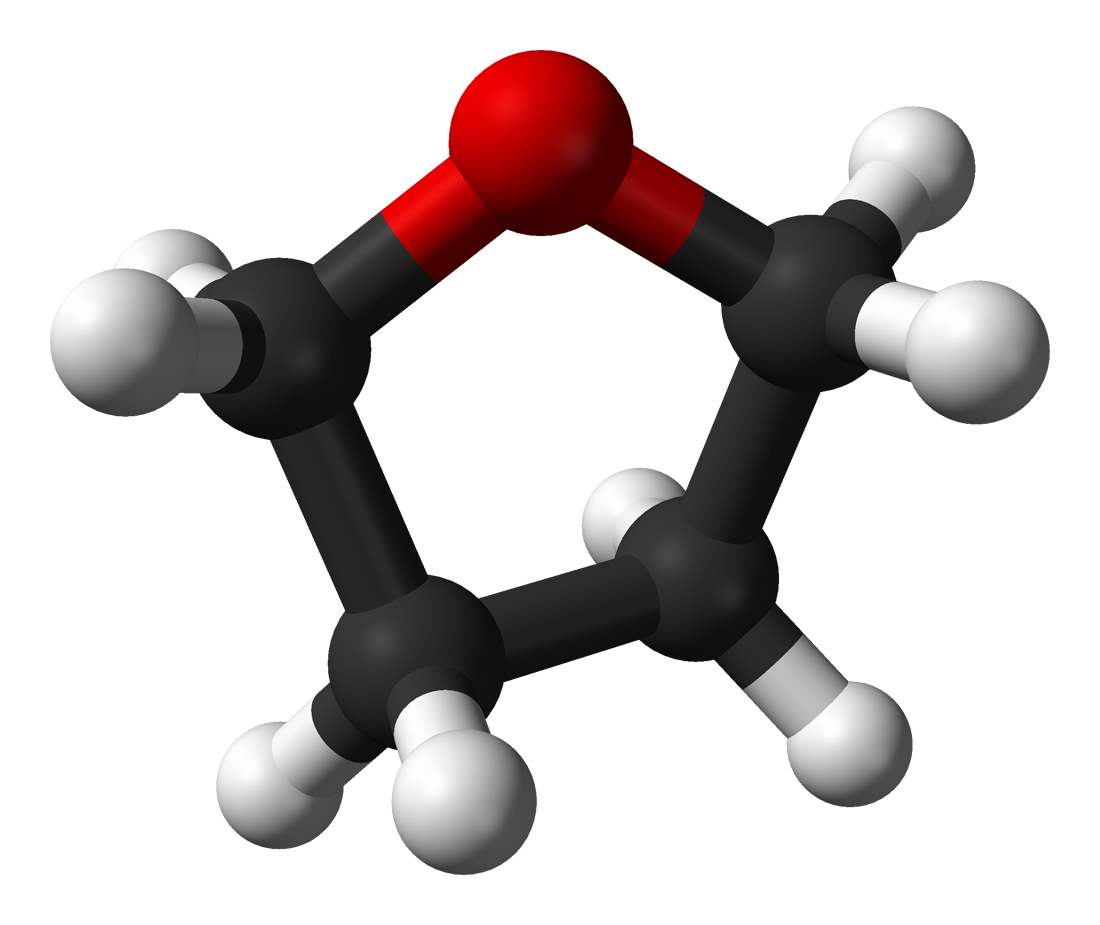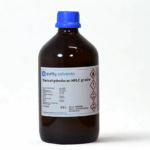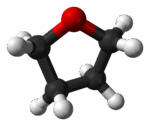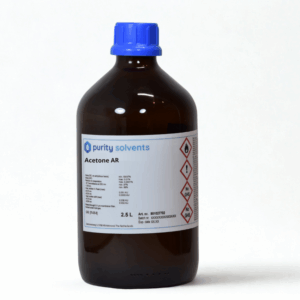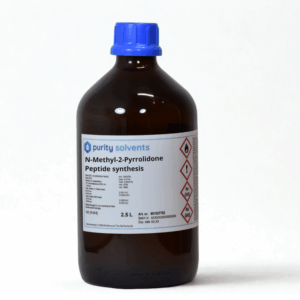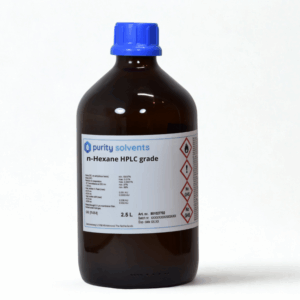Technical Data Sheet, Tetrahydrofuran
Please request at info@puritysolvents.com
Downloads / MSDS
Description
| Catalogue Number | |
| Synonyms | Oxolane, 1,4-Epoxybutane, 1-Oxacyclopentane, THF, 1,4-Butylene oxide, Cyclotetramethylene oxide fraction, Furanidin, Tetra-methylene oxide , cas 109-99-9 |
| Overview | Tetrahydrofuran is a clear, colorless, volatile liquid with an ether-like odor. It is a cyclic ether and a highly polar aprotic solvent, commonly used in polymer chemistry, organometallic reactions, and solvent applications. THF is miscible with water and most organic solvents. It can form explosive peroxides on exposure to air and light over time, requiring careful storage. |
Product Information
Tetrahydrofuran (THF) is a flammable, polar solvent used widely in organic synthesis, polymer processing, and chemical manufacturing. It can form explosive peroxides upon aging and is classified as a suspected carcinogen, requiring careful handling and storage.
| Formula | C₄H₈O |
| Molar mass (M) | 72,11 g/mol |
| Density | 0,889 g/cm³ |
| Boiling point (bp) | 66 °C |
| Flash point | -17 °C |
| Melting point | -108,5 °C |
Application(s)
| Organic Synthesis |
Solvent for Grignard reactions, lithium reagents, and other organometallic chemistry Used in nucleophilic substitution and polymerization reactions |
| Polymer Industry |
Solvent in PVC and polyurethane production Used in electrospinning and making polymer membranes Reacts in situ to form polytetramethylene ether glycol (PTMEG) |
| Solvent Applications |
Common solvent in coatings, adhesives, inks, and cleaning agents Employed in high-performance chromatography |
| Laboratory Use |
General-purpose polar aprotic solvent Compatible with strong bases and metal complexes |
Become a Partner of Purity Solvents
 Partner with us to access the highest quality, REACH-compliant industrial-grade solvents.
Partner with us to access the highest quality, REACH-compliant industrial-grade solvents.Ensure purity, reliability, and compliance for your business. Sign up today and streamline your sourcing with confidence!
 Partner with us to access the highest quality, REACH-compliant industrial-grade solvents.
Partner with us to access the highest quality, REACH-compliant industrial-grade solvents.Ensure purity, reliability, and compliance for your business. Sign up today and streamline your sourcing with confidence!
Safety Information according to GHS
| Hazard Pictogram(s) |   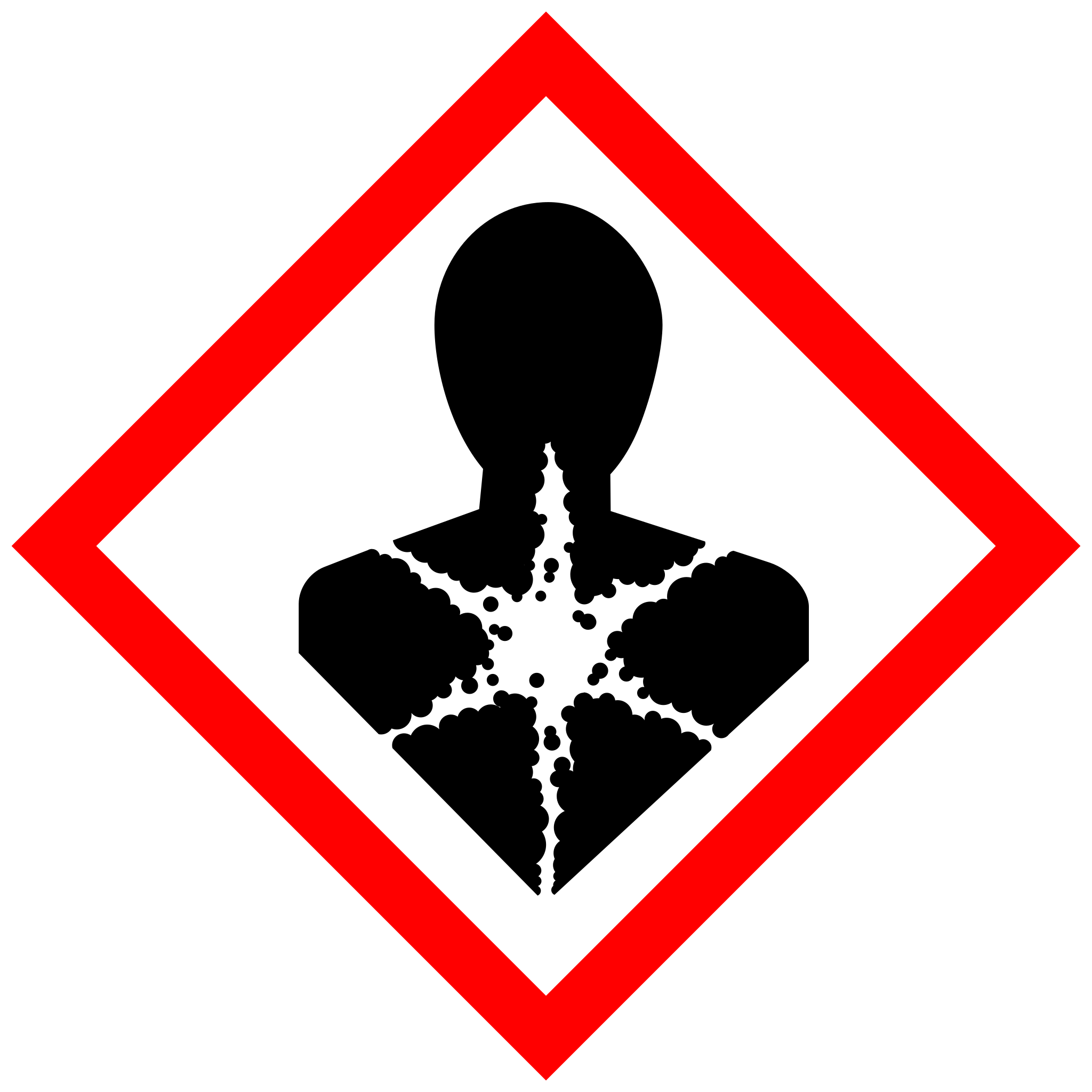 |
| Hazard Statement(s) | H225 Highly flammable liquid and vapour. H319 Causes serious eye irritation. H335 May cause respiratory irritation. H351 Suspected of causing cancer. |
| Precautionary Statement(s) | P201 Obtain special instructions before use.
P210 Keep away from heat, hot surfaces, sparks, open flames and other ignition sources. No smoking. P271 Use only outdoors or in a well-ventilated area. P280 Wear protective gloves, protective clothing, eye protection and face protection. P240 Ground and bond container and receiving equipment. P241 Use explosion-proof electrical/ventilating/lighting/intrinsically safe equipment. P242 Use non-sparking tools. P243 Take action to prevent static discharges. P261 Avoid breathing mist/vapours/spray. P264 Wash all exposed external body areas thoroughly after handling. P308+P313 IF exposed or concerned: Get medical advice/ attention. P370+P378 In case of fire: Use alcohol resistant foam or normal protein foam to extinguish. P305+P351+P338 IF IN EYES: Rinse cautiously with water for several minutes. Remove contact lenses, if present and easy to do. Continue rinsing P312 Call a POISON CENTER/doctor/physician/first aider/if you feel unwell. P337+P313 If eye irritation persists: Get medical advice/attention. P303+P361+P353 IF ON SKIN (or hair): Take off immediately all contaminated clothing. Rinse skin with water [or shower]. P304+P340 IF INHALED: Remove person to fresh air and keep comfortable for breathing. |
| Signal Word | Danger |
Storage and Transport Information
| Declaration (railroad and road) ADR, RID | UN 2056 , 3, II |
| Declaration (transport by air) IATA-DGR | UN 2056 , 3, II |
| Declaration (transport by sea) IMDG-Code | UN 2056 , 3, II |

